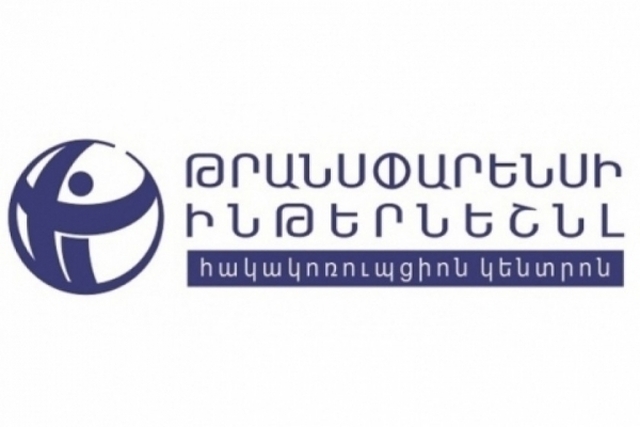Statement on International Anti-corruption Day
Yerevan , 9 December, 2019
Early 2019 was marked by the launch of a new parliament, formed through equal, competitive, and free elections, and the formation of an executive branch, which by its subsequent actions confirmed its clear political will to fight corruption.
In the second half of 2019, a sound process of advancing anticorruption policy was pursued in Armenia which created the required bases for the legal and institutional system. Particularly:
• On June 24, by the decree of the Prime Minister the Council of Anti-corruption Policy was established, which is intended to serve as a key platform for coordination of the anti-corruption efforts and discussions.
• On October 3, the Government of Armenia approved the Anti-corruption Strategy 2019-2023 and its Action Plan, outlining the overall anti-corruption institutional system and proposing rather ambitious actions.
• On October 10, the Armenian Government approved the 2019-2023 Strategy for Judicial and Legal Reforms, which promises drastic changes aimed at enhancing the effectiveness of the institutions - courts, prosecutor’s office and investigative bodies – which play a crucial role in the fight against corruption, as well as taking effective measures towards the implementation of transitional justice.
• On November 19, the National Assembly set up the Corruption Prevention Commission, the enhanced functions of which, if implemented effectively, may significantly prevent corruption in the future.
• During the course of 2019, a number of draft legal acts were drafted ("On Corruption Prevention Commission", "On the Confiscation of Assets of Illicit Origin", "On Political Parties", "On Making Amendments and Additions to the Law on Public Service", etc.) that provide a favorable legal environment for fighting corruption.
Following the 2018 revolution as well as during the present year, law-enforcement authorities continued their active actions aimed at detecting corruption-related crimes. It should be noted that during this period there were high profile corruption cases related to high-ranking officials from both the former regime and current authorities.
Against this backdrop and based on various publications of the year, we can claim that corruption in Armenia has ceased to be systemic or at least the factors that made it systemic have significantly weakened. The administrative and political levers of monopoly and oligopoly domination have substantially declined, the shadow economy has reduced, and the GDP has increased. There are no serious and credible facts pointing out to the convergence of big businessmen within the ruling political elite. There are no publications to claim about the existence of a corruption pyramid in the state governance system or widespread and coordinated tax extortion.
Meanwhile, it is early to claim that corruption in Armenia has ceased to be a serious challenge and that it is no longer a crucial factor negatively affecting the development of the country. It is of concern that on the very first year after the revolution, there are many media publications exposing corruption as well as official reports of law-enforcement bodies, which come to testify that former corrupt schemes and vicious practices still continue to operate to some extent. The situation is dangerous in the sense that it creates favorable conditions for the comeback of systemic corruption, whereas resisting it through changes in public mentality and behavior will take a lot of time. The operation of separate corruption schemes may seriously harm the efforts of newly-established anti-corruption bodies and those of anti-corruption authorities yet to be established while also hampering the effectiveness of the anti-corruption strategy.
In addition, there have unfortunately been observed certain phenomena occurring by inertia or newly taking place, which endanger the anti-corruption ambitions of the government and give way to new doubts and disappointments.
Particularly, there are concerns regarding the non-transparent and unaccountable operations of state and local authorities when decisions regarding bonus payments were kept confidential in the cases of the RA National Assembly and the government, or agreements reached with various businessmen and property received as donations in the case of the Yerevan Municipality.
The increase of the volumes of procurements made from one person in the process of public procurements are alarming while the selection of suppliers whose owners, according to the media, have been linked to current high-ranking officials is also of concern.
In general, continuous and recent revelations of conflicts of interests, turning a blind-eye to those revelations and/or suspicious patronage are extremely problematic. The main instrument for the prevent of corruption is the prevent of conflicts of interest and/or its management. Therefore, the tolerant behavior towards the noted phenomenon creates conditions conducive to corrupt dealings and makes the introduction of a new culture of governance vulnerable.
In the process of effective anti-corruption efforts, the pace of implementation of reforms and undertaken commitments is a key factor. Delays of those reforms obviously strengthen the resistance and durability of corrupt factions and endangers the anti-corruption and democratic agenda of the revolution.
In the present situation, radical reforms in all areas are of utmost importance and even more important are the reforms in the judiciary and law-enforcement authorities aiming to ensure the integrity of officials, reduce of corruption risks and increase public trust. In this context, it is incomprehensible that the resolution of the crisis surrounding the Constitutional Court keeps getting delayed and its members who had for years verified the results of rigged national elections continue to stay in office.
It is pivotal to bring people to leading positions who are knowledgeable, ideological, profess the values of the revolution, have management skills and courage to initiate change, and what is more important, it is crucial to ensure these people stay in the system of governance. Existing systems are decaying and even new and idealist people might be absorbed by it and conform to it, while those who resist are unfairly booted out.
While mostly positively welcoming the anti-corruption policy carried out by the legislative and executive branches of the Armenian Government, we express hope that those efforts will not be solely limited by the implementation of foreseen strategies and measures, but will also strive to change the governing and political culture in all areas. Revolutionary changes are expected to be made from the political group that led the revolution. Changes need to take place everywhere and be fundamental and urgent.






